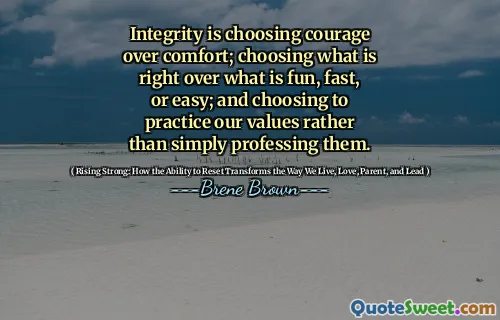
I do not belong to any political party because I am not a party to the wrongs they eventually do.
This quote serves as a profound reflection on individual integrity and the importance of moral independence in the face of political affiliations. It underscores the idea that commitment to principles should take precedence over allegiance to any group, especially when that group’s actions conflict with one's ethical standards. In a world where political parties often prioritize power, ideology, or self-interest over ethical considerations, remaining unaffiliated or choosing to distance oneself can be an act of moral courage. The statement implicitly criticizes the tendency of political entities to commit wrongdoings and suggests that one’s conscience should remain detached from complicity, even if that means standing apart. Such a stance encourages thoughtful engagement and personal accountability rather than blind loyalty to flawed systems. It invites us to consider the importance of individual morality and the courage required to oppose collective wrongdoings. When people become entangled in political allegiances that overlook justice or ethics, it can compromise their integrity. By claiming not to identify with any party because of their wrongdoings, the speaker is advocating for a personal moral compass and integrity that supersedes political expediency. This attitude can inspire others to evaluate their own loyalties and to prioritize doing what is right over conforming to flawed groups or systems. Upholding such values fosters a society where accountability and righteousness are held above factional loyalty or convenience, paving the way for genuine progress and justice.










